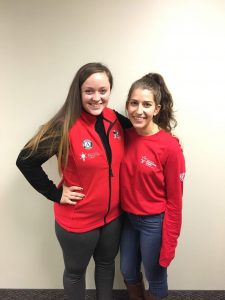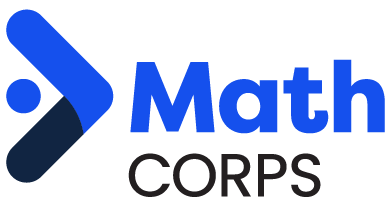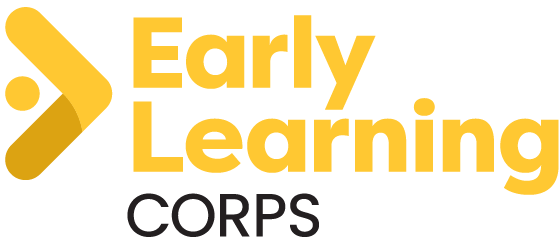Developing the skills to become a teacher: Interview with Alison Najmy, K-3 Reading Corps Alum
Developing the skills to become a teacher
Interview with Alison Najmy, K-3 Reading Corps Alum
After graduating from a small liberal arts college in Oregon, Alison returned to Michigan and served with Michigan Education Corps K-3 Reading Corps in Kentwood for the the 2018-2019 school year. Now, Alison is serving with City Year Detroit while pursuing her teaching certification. She plans to teach either mathematics and/or history at the high school level.
Q: What initially inspired you to serve with Michigan Education Corps?

Alison (right) and Alissa served together in K-3 Reading Corps in Kentwood in the 2018-2019 school year.
A: After graduating college, I knew I wanted to find a position in the education realm but I wasn’t ready to commit to a teacher certification program yet. Both the greater civic mission of AmeriCorps and the literacy focus of Michigan Education Corps resonated with me. Serving with MEC also provided the perfect transitory opportunity to explore my place and path in the field of education.
Q: What skills and experiences did you take away from your service with MEC?
A: MEC laid the foundation for skills that are critical for my success as I interact with my future students. My service enhanced my ability to build rapport and trust with students and teachers, analyze data, and objectively look at myself through feedback. I finished the school year with more confidence, greater patience, and more effective communication skills.
Q: Last year you served with Michigan Education Corps in Kentwood. You’re now serving with City Year in Detroit. What has the experience been like serving in two different programs and in two different locations?
My experience with Michigan Education Corps introduced me to the fundamentals of AmeriCorps service that continue to play out in my role with City Year. MEC and City Year are similar in that they both place corps members directly into a school setting and seek to close achievement gaps by advancing literacy skills. Additionally, both programs also expose corps members to the complexities of public school and educational inequity. My service with City Year is an expansion of the role I served in as an MEC interventionist. I have small group and one-on-one time with students, but I also assist a lead teacher in the Tier 1 classroom space. I am one of the school math coordinators, which consists of developing school-wide math-based initiatives that increase excitement and confidence for the subject. In Kentwood, my service was interesting because there was a large immigrant and English-language learner population in the school district which influenced the dynamics of my role as a literacy interventionist. In Detroit, there are a variety of deeply rooted problems that also impact my role as a student success coach. Being a literacy interventionist with Michigan Education Corps cultivated my creative thinking and problem-solving skills, and now, serving with City Year Detroit, I am strengthening those same skills.
Q: What are your career goals and how will your service experience (in both programs) help you reach your goals?
A: After serving with two different AmeriCorps programs for the past two years, I am confident that I want to pursue a career as a high school math teacher, with additional certification to teach Social Studies. Michigan Education Corps and City Year gave me the tools to prepare for working in a classroom space, fostering student engagement, and contributing to a cause greater than oneself. Additionally, I am now part of the AmeriCorps family and have the resources to connect with others in my career field.
Q: What is one thing that you want people to know about serving with AmeriCorps programs?
A: The small victories are invaluable! Serving with AmeriCorps, and knowing you are part of a nation-wide network to expand justice, opportunity and equity is a powerful experience. However, sometimes no matter how much energy and devotion we are able to put into our service, there are still some barriers that we don’t yet have the resources to overcome. In a school setting, there are so many intertwined and systemic factors at play, and the multiple layers of inequity can be disheartening. In the midst of this, when students achieve daily goals such as completing classwork and homework assignments, I feel inspired and invigorated to keep pushing. Recognize that even the smallest wins still contribute to “getting things done for America!”








